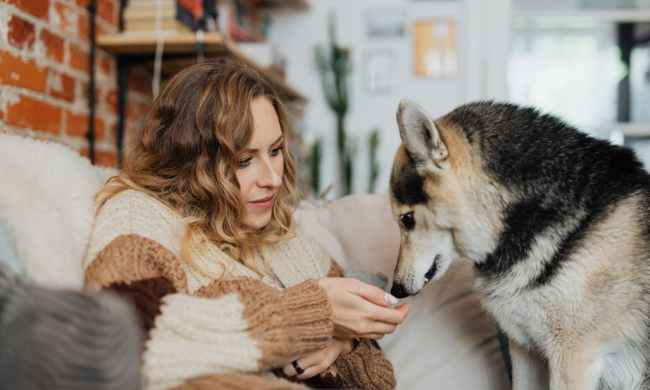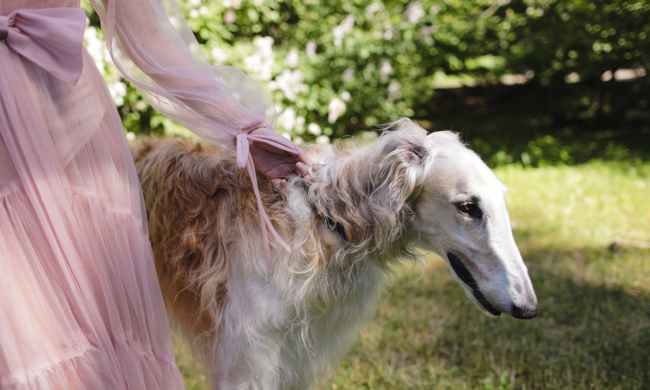Although St. Bernards, mastiffs, and several other large breeds are known for their tendency to drool, it may be quite a shock if your usually drool-free pup suddenly starts to salivate. Luckily, you’ve come to the right place if you find yourself asking, “Why is my dog drooling?”
We’ve looked into many causes of excessive and sudden salivation, from the easy fixes to the more concerning problems. Most likely, drooling is nothing to worry about, but it never hurts to take a more careful look — especially if your pup is behaving oddly. Here’s everything you’ll want to know about canine salivation.
Why is my dog drooling, and is sudden or excessive drooling a cause for concern?
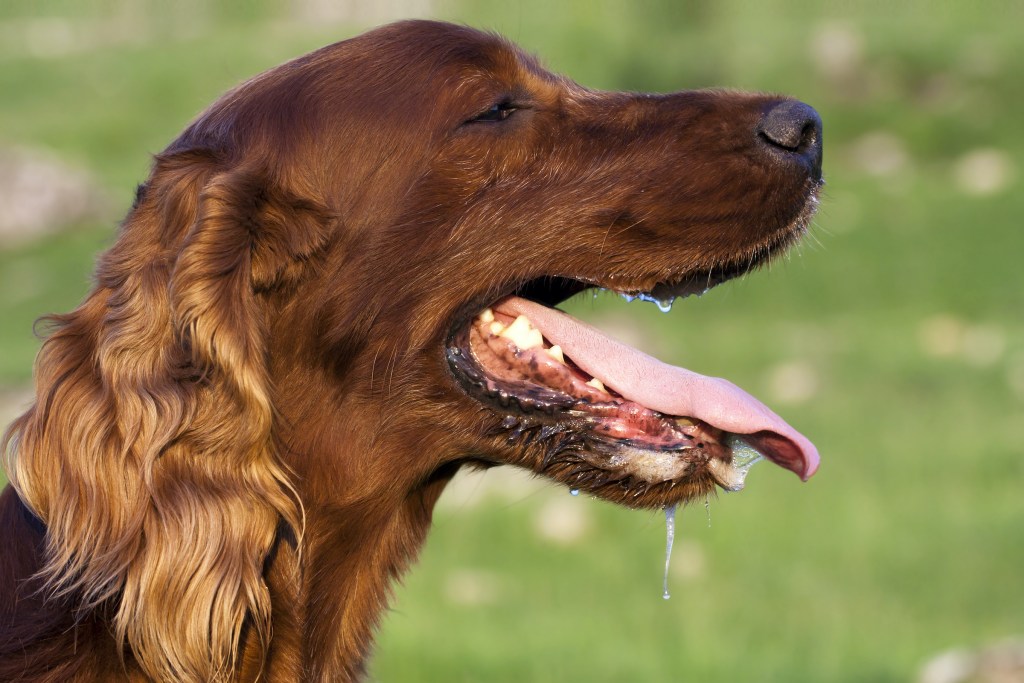
Though drooling has many harmless causes, which we’ll cover later in this article, you may want to keep a closer eye on your pet if you notice sudden salivation — especially if it’s a large amount.
Nausea and stomachaches are common causes of acute drooling for dogs, although they will be temporary. If you think about it, many humans experience the very same thing! You may also notice vomiting or lethargy if your pet has ingested something they’re not supposed to, so don’t hesitate to contact your veterinarian if you’re concerned about your best buddy’s well-being.
On a more urgent note, dogs may also salivate if a foreign object becomes lodged anywhere in the mouth or throat. This can become a dangerous situation if the object blocks their airways, so you should waste no time in getting your fur baby to your closest veterinarian.
Excessive, sudden drooling can also occur when a dog is overheated. Although salivation may act as a way of cooling off, just like panting, dogs don’t usually resort to this technique unless they are having trouble regulating their temperature through panting alone.
One last cause of sudden drooling is an upper respiratory infection. An illness of the nose, throat, or sinuses is more likely for pups in group settings, such as shelters or kennels, but any dog can catch one. Luckily, your veterinarian will be able to guide you toward the best treatment for your furry friend. In most cases, it’s a quick fix.
Is salivation or drooling a symptom of stress in dogs?
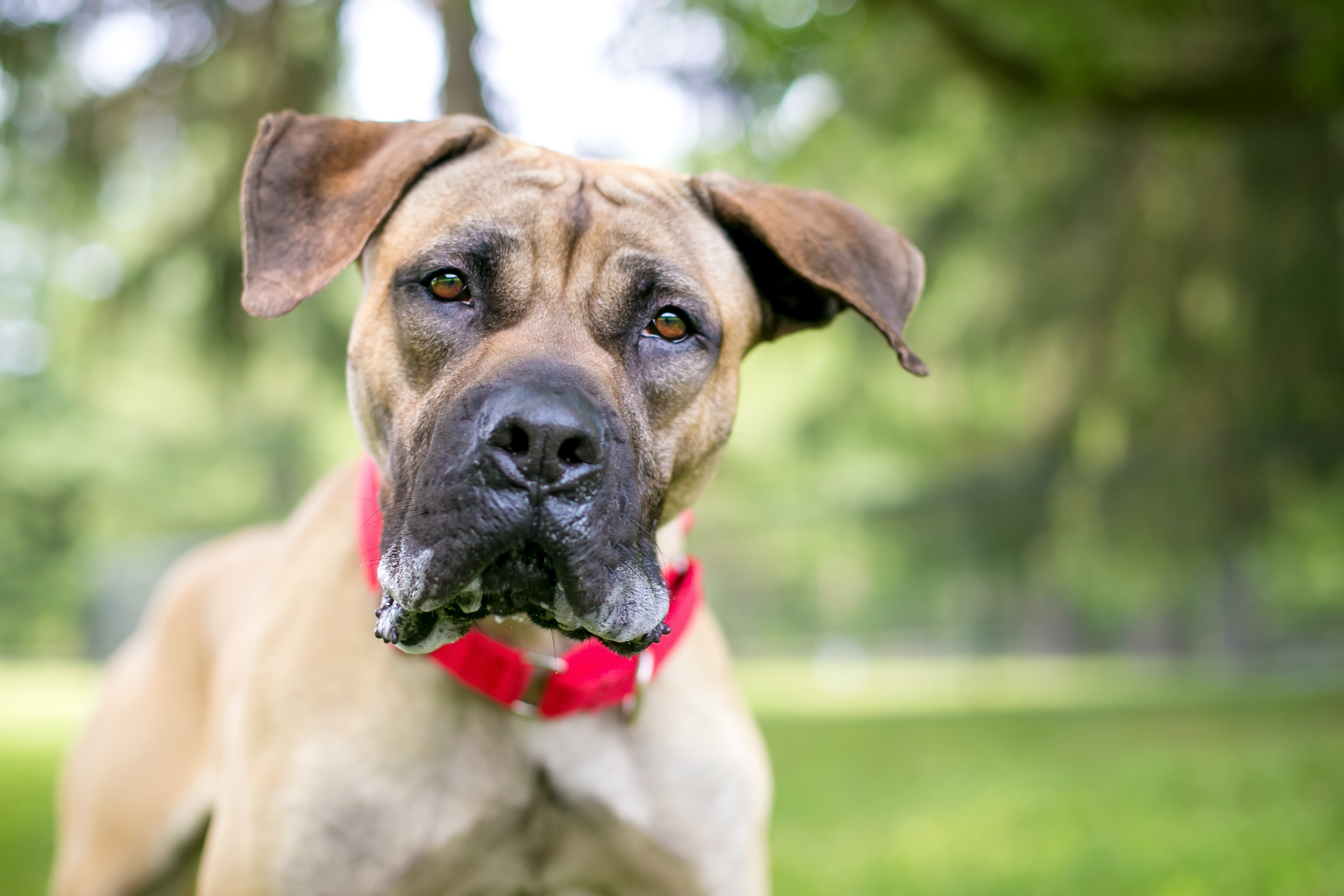
A stressed-out pup may show their emotions in different ways, including salivation. The team of veterinarians with VCA Hospitals lists both drooling and excessive licking as symptoms of anxiety in dogs. You might even notice a stress yawn, which looks “more prolonged and intense than a regular yawn.”
If your dog is feeling overwhelmed, you will likely spot at least one of the other signs of stress in canines. These are some of the most common, as listed by VCA Hospitals:
- Pacing
- Rigid posture
- Tail tucked between legs
- Trembling
- Whining
- Panting
- Increased shedding, or “blowing their coat”
- Barking out of normal occasions
- Dilated pupils and rapid blinking
Why is my dog drooling clear slime?

In addition to the amount of drool, you may get some knowledge from looking more closely at the spit itself. Clear slime is generally what you would expect, just as the saliva in your mouth usually stays transparent. However, extreme dehydration can make your pet’s drool thicker since their bodies get low on water overall. A yellow-stained liquid might mean an infection, especially in the teeth, while a red tinge could indicate blood in the mouth.
Lastly, brown may be a sign of an infection, blood, or even parasites. Noticing these minor details might help lead you to the underlying issue. One last note: Don’t confuse spit with vomit as throwing up should always be looked into.
Do dogs drool when the end is near? How can you tell?
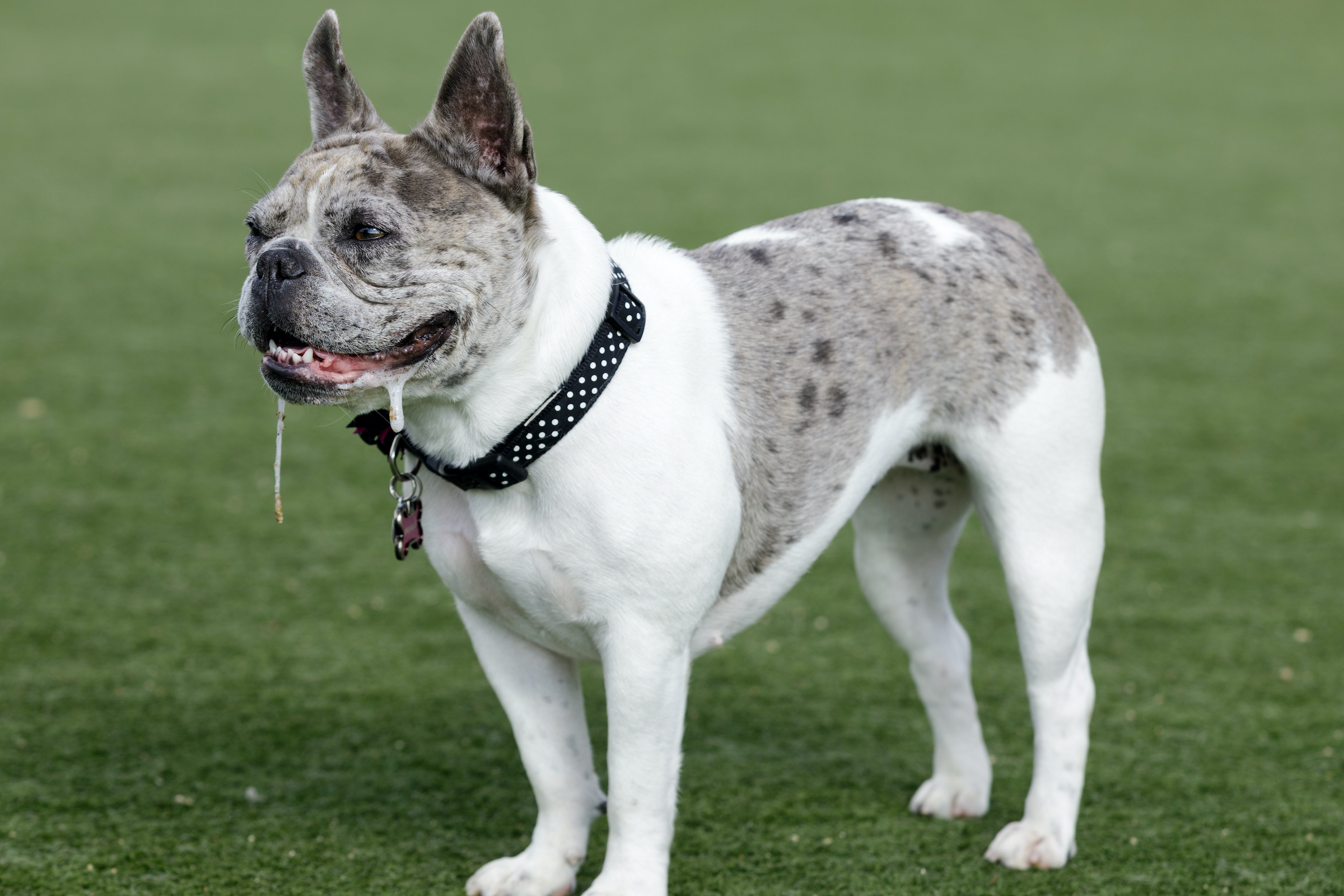
Like a number of symptoms, excessive drooling can, but doesn’t always, occur in a dog’s final days. Adrienne Farricelli, DVM, explains that drooling can be a common symptom of nausea and imminent vomiting, which could be present for a number of reasons. As you likely know, the vast majority of nausea cases are not fatal, but it can hint at the end if a dog is already in a severe health decline.
Farricelli also reminds pet parents that drooling can happen when a dog loses their ability to swallow. In this case, the pooling of saliva can be indicative of a dying canine’s final hours.
How do you treat a drooling dog?
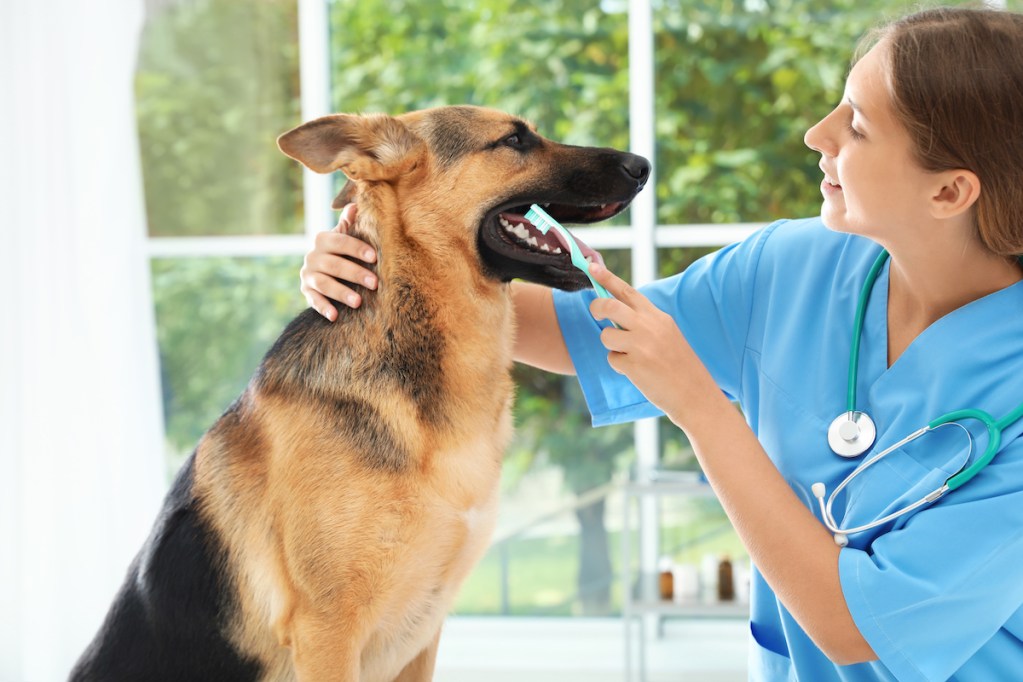
This depends a lot on the underlying cause, since the treatment should match the problem. If it’s an issue of stress or with his teeth, you’ll have an easy fix. Try some techniques to calm your pet in the former or take him to the vet for his yearly dental cleaning in the latter. Those causes aren’t a big concern and you should see his drooling going down afterward.
Vomiting might require a bigger intervention if there’s a blockage, since that can be fatal if left alone. However, drooling could also mean a deeper issue is at play. As usual, your dog doctor will partner with you to get to the bottom of the mystery.
Why is my dog drooling? Here’s how to find out
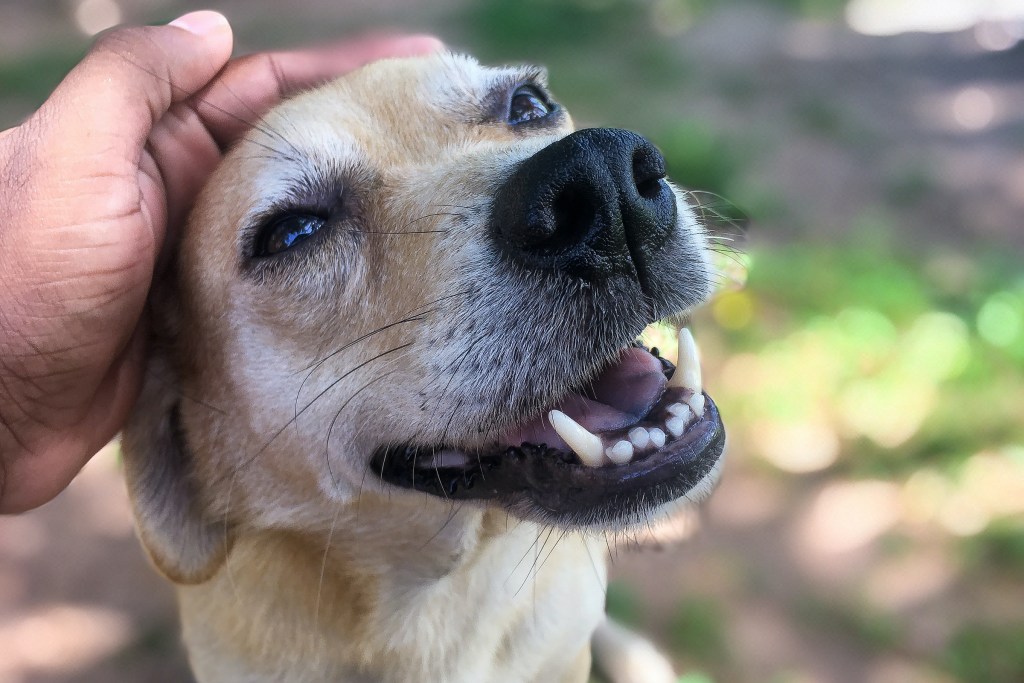
Overall, drooling can have so many causes, from harmless to harmful. This can make the diagnosis hard to identify at first glance, which is why it’s so important to keep an eye on your pup if you notice a change in salivation habits. Here are a few symptoms — and their causes — you can watch out for:
- Discolored teeth, bad breath, and inflamed or bleeding gums are all signs of dental disease
- Increased thirst and urination, bad breath, vomiting, and diarrhea are signs of kidney disease and failure
Even though a few of these causes of excessive or sudden drooling can be scary to read about, you don’t necessarily need to worry. As long as you’re able to keep an eye on your pet for any further symptoms, you shouldn’t run into any problems you can’t handle. Remember, your veterinarian is always there if you need them, too, and you should waste no time if you think you may need their advice.



